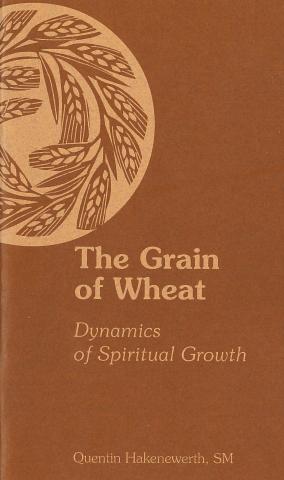by Quentin Hakenewerth, SM
88 pgs. (reissued 1997)
Father Hakenewerth states in his preface: “The Grain of Wheat is meant for anyone who wants to grow in virtue and develop an effective personality for dealing with the daily challenges of life. It begins with what is within the scope of everyone and moves gradually to what is totally within the power of the Holy Spirit.” This book was first published in 1967, but especially in its revision, speaks to us today. We are a society plugged into our computers and maintaining schedules that keep us withdrawn from society. The Grain of Wheat reminds and shows us that we need to reach out to others. “Our defenses and protective habits must die so that our love can reach out to others. The redemptive message of the Gospel reminds us if the grain dies ‘it bears much fruit’ (Jn 12:24).”

